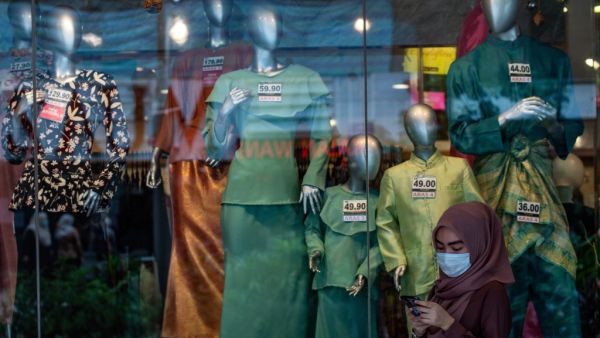Though the coronavirus pandemic has shown signs of slowing in some Arab Muslim countries, it will be probably a sombre Eid for millions of Muslims who are expected to limit their festive celebrations to small family gatherings within the same house, amid fears of a second wave of infections.
Some governments in the region have already announced strict measures ahead of the holiday that usually begins with a massive attendance of congregational morning prayers, followed by gatherings with family members for big meals. Visits to relatives and friends normally take place later in the day or the following day.
To maintain social distancing guidelines, Saudi Arabia, Lebanon, Jordan and other Muslim countries have announced full curfews, with the aim of curbing any further outbreaks.
In Saudi Arabia, the interior ministry announced May 12 it would enforce a 24-hour, nationwide curfew during the five-day Eid period.
The curfew, according to the ministry, will apply from May 23-May 27 following the end of the fasting month of Ramadan.
Until then, commercial and business enterprises will remain open as they are now and people will be able to move freely between 9am local time (0600 GMT) and 5pm, except in Mecca, which remains under full curfew, the statement published by state news agency SPA said.
Saudi Arabia previously imposed 24-hour curfews on most towns and cities but eased them for the start of Ramadan. It has yet to loosen full confinement measures in some areas with high rates of infections.
The kingdom has so far recorded 42,925 cases of COVID-19 and 264 deaths.
These are the highest numbers in the six-member Gulf Cooperation Council (GCC), which together have more than 107,000 cases and 582 deaths.
Saudi Arabia’s measures are similar to those announced by the Jordanian government. On Tuesday, Jordan’s minister of state for media affairs, Amjad Adaileh said commercial sectors will not be allowed to work on the first day of Eid al-Fitr, as there will be a full curfew similar to that being applied each Friday. People will only be able to go out on foot, except for health workers and others in vital sectors. Only those with permits will be able to move between governorates.
The day before, Adaileh stated that Eid al-Fitr will fall between Saturday morning, May 23 to Monday evening, May 25.
In Lebanon, the situation appears even more bleak, as the government reinstated a four-day nationwide lockdown May 13 following a spike in reported coronavirus cases.
The government called on the public to stay home beginning on the evening of May 13 until dawn May 18, reversing earlier measures that had phased out restrictions.
The rare reversal comes as Lebanon struggles to balance economic and health concerns that have culminated in an unprecedented crisis.
Lebanon’s financial drought has put growing pressure on an already disillusioned population that has seen their savings erode. Lebanon’s currency, whose value had been pegged to the dollar since 1997, lost 60% of its worth in the span of weeks earlier this year.
Eager to restart its economy after businesses closed during the coronavirus crisis, Lebanon began a plan to relax its national lockdown late last month that allowed small businesses to reopen, and shortened a nighttime curfew.
But after a few days of single-digit cases detected, there was a spike in reported infections this week, including among Lebanese returning home during repatriation programmes who did not observe quarantine measures.
Lebanon, with just over 5 million people, has so far been able to contain the virus, recording only 870 infections and 26 deaths after imposing early lockdown measures and strictly implementing restriction on movement.
However, government and health officials criticised careless behaviour and a lack of social distancing in recent days.
The United Arab Emirates, meanwhile, said it will offer free coronavirus testing for all citizens beginning next week. Foreigners in the country with coronavirus symptoms, pregnant women, those over 50 and those in contact with those who have fallen ill with COVID-19 will also be among those able to be tested for free.
Private beaches at hotels are beginning to reopen in Dubai, even as the number of confirmed cases and deaths continue to rise in the country.
In Tehran, mosques temporarily reopened on the night of May 12 for special Ramadan prayers after being closed for nearly two months.
A mosque at Tehran University’s campus in the centre of the city also hosted worshipers for the “Qadr,” or ‘‘Night of Destiny,” a special night of prayers in the Muslim holy month.
Iranian officials closed down all mosques and holy sites across the country in mid-March at the height of the coronavirus outbreak to lower the risk of contagion. The virus has killed more than 6,700 people and infected more than 110,000 people in Iran so far.
This article has been adapted from its original source.








